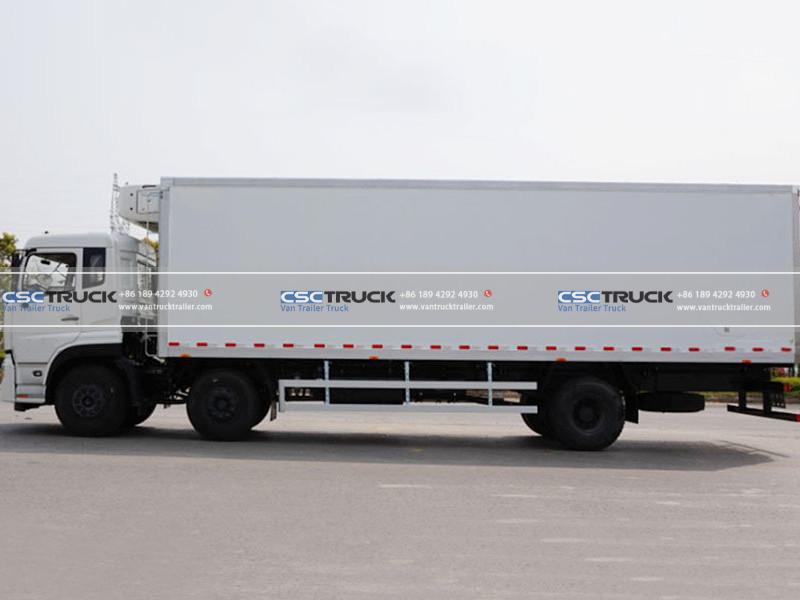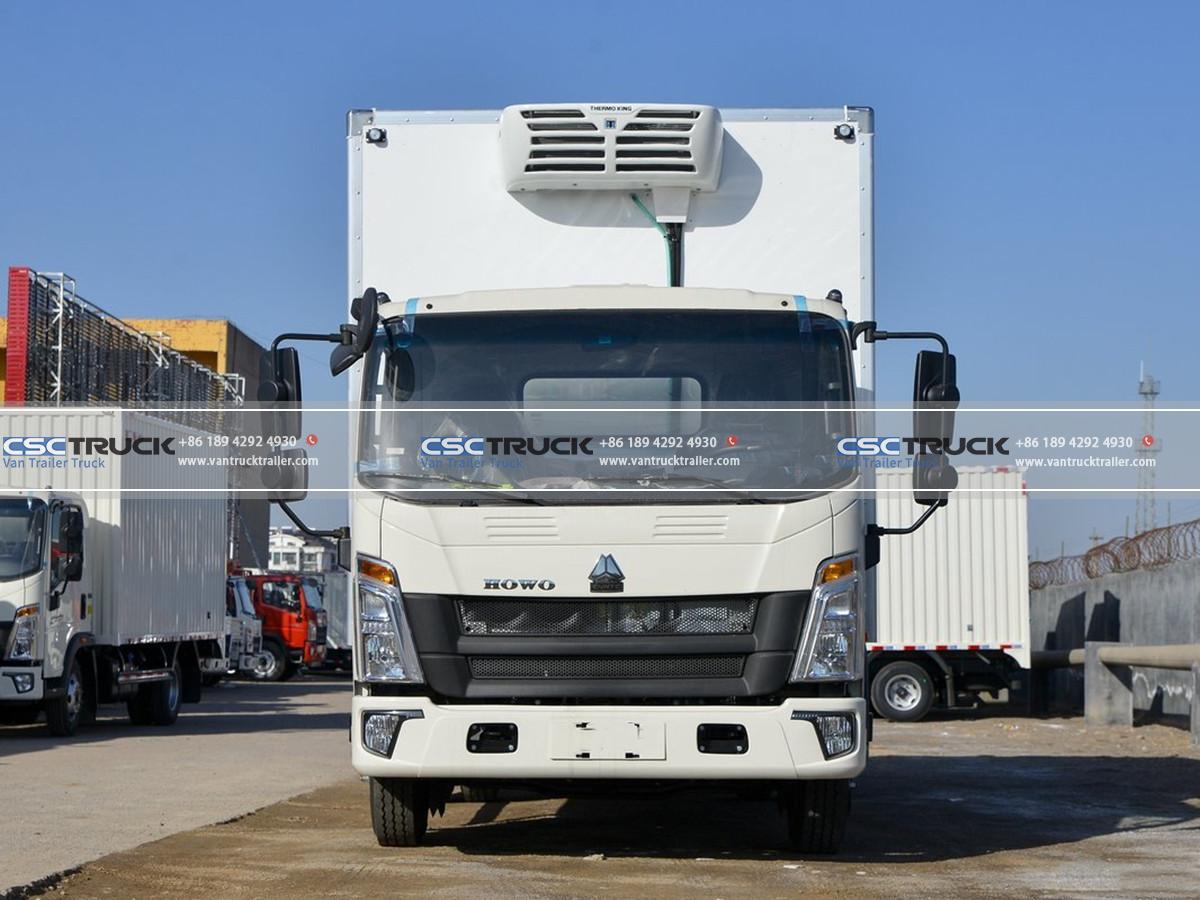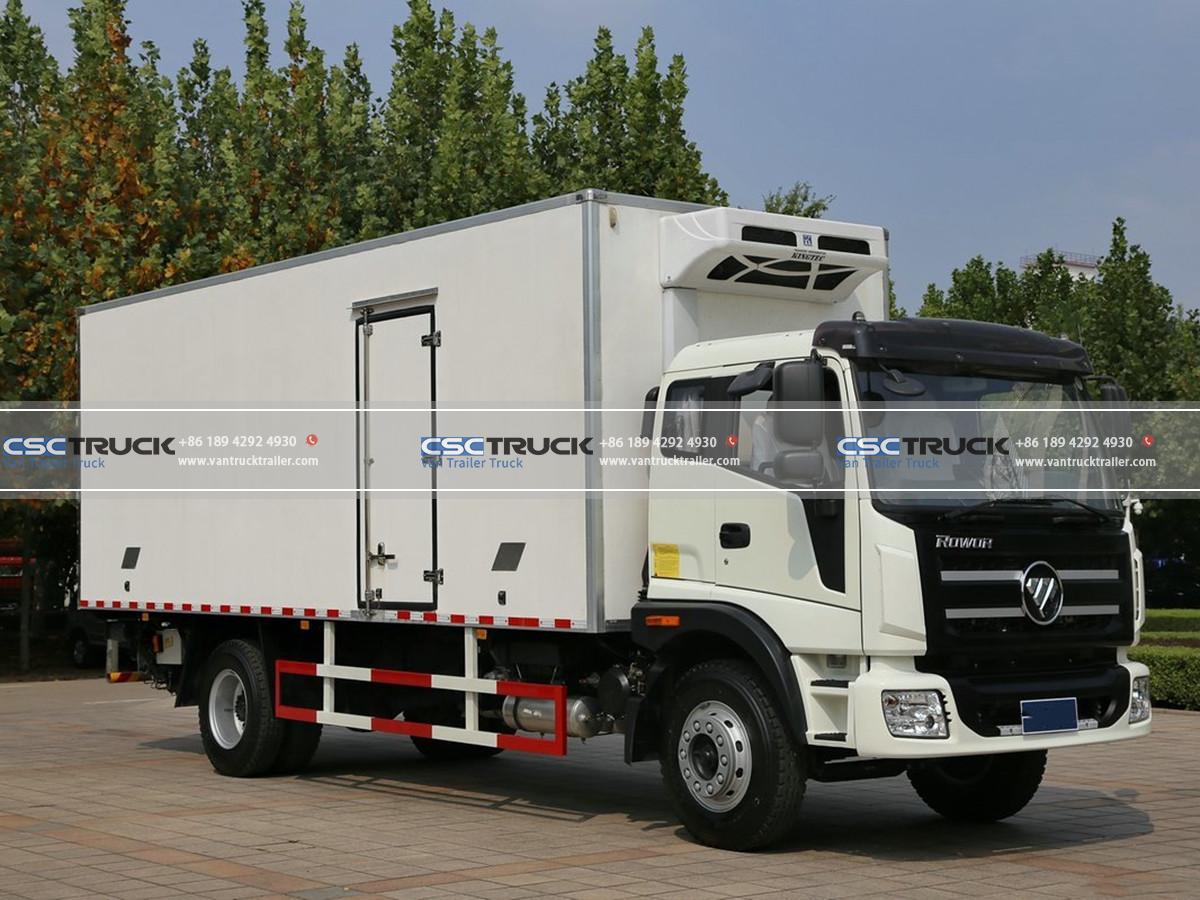In the world of logistics and supply chain management, transporting temperature-sensitive goods requires precision, reliability, and specialized equipment. For businesses dealing with perishable items such as food, pharmaceuticals, or floral arrangements, a refrigerated truck is an indispensable tool. Unlike a standard dry van truck, which is designed for non-perishable goods, a refrigerated truck offers temperature-controlled environments that ensure the integrity and quality of sensitive shipments. From maintaining freshness to complying with regulatory standards, the benefits of using a refrigerated truck are vast and impactful. This blog post explores the key advantages of these specialized vehicles, highlighting why they are essential for businesses that rely on temperature-sensitive shipments.
1. Temperature Control: Preserving Product Quality
The primary benefit of using a refrigerated truck is its ability to maintain precise temperature control throughout the transportation process. For perishable goods such as fresh produce, dairy products, or frozen foods, even slight deviations in temperature can lead to spoilage, rendering the products unsellable. A refrigerated truck eliminates this risk by providing a consistent and controlled environment that keeps goods at their optimal temperature.
Unlike a dry van truck, which relies on ambient air for ventilation, a refrigerated truck is equipped with advanced cooling systems that can be adjusted to meet specific temperature requirements. Whether it’s keeping frozen goods at -20°C or maintaining fresh produce at 4°C, these vehicles ensure that products remain in perfect condition from origin to destination. This level of control is particularly critical for industries such as food and pharmaceuticals, where product quality directly impacts consumer safety and satisfaction.
By preserving the freshness and integrity of temperature-sensitive goods, refrigerated trucks help businesses reduce waste, minimize losses, and maintain their reputation for delivering high-quality products.
2. Compliance with Regulatory Standards
For businesses that transport temperature-sensitive goods, compliance with regulatory standards is not just a best practice—it’s a legal requirement. Industries such as food and pharmaceuticals are subject to strict regulations that govern the storage and transportation of perishable items. A refrigerated truck is designed to meet these stringent requirements, ensuring that businesses remain compliant and avoid costly penalties.
For example, the Food Safety Modernization Act (FSMA) in the United States mandates that food products be transported under conditions that prevent contamination and spoilage. Similarly, pharmaceutical companies must adhere to Good Distribution Practices (GDP), which require temperature-controlled environments for drugs and vaccines. A refrigerated truck provides the necessary infrastructure to meet these standards, offering features such as temperature monitoring, data logging, and alarm systems that alert drivers to any deviations.
In contrast, a dry van truck lacks the specialized equipment needed to comply with these regulations, making it unsuitable for transporting temperature-sensitive goods. By investing in a refrigerated truck, businesses can ensure that their shipments meet all legal requirements, safeguarding both their operations and their customers.
3. Versatility: Adapting to Diverse Cargo Needs
One of the standout features of a refrigerated truck is its versatility. These vehicles can be customized to handle a wide range of temperature-sensitive goods, from fresh produce and frozen foods to pharmaceuticals and floral arrangements. This adaptability makes them an ideal choice for businesses across various industries.
For instance, a refrigerated truck can be configured with multiple temperature zones, allowing it to transport different types of goods simultaneously. This feature is particularly useful for businesses that deal with mixed shipments, such as grocery distributors that need to deliver both frozen and fresh items in a single trip. Additionally, refrigerated trucks can be equipped with specialized storage solutions, such as racks or compartments, to accommodate unique cargo requirements.
While a dry van truck is limited to non-perishable goods, a refrigerated truck offers the flexibility needed to handle diverse cargo needs. This versatility ensures that businesses can rely on a single vehicle to meet their transportation requirements, reducing the need for multiple specialized trucks and optimizing operational efficiency.
4. Enhanced Security and Protection
Transporting temperature-sensitive goods requires more than just temperature control—it also demands a high level of security and protection. A refrigerated truck is designed to safeguard cargo from external threats such as theft, contamination, and environmental factors.
The fully enclosed design of a refrigerated truck provides a secure environment that shields goods from unauthorized access and tampering. This is particularly important for high-value shipments, such as pharmaceuticals or gourmet foods, where the risk of theft is a major concern. Additionally, the insulated walls of a refrigerated truck protect cargo from external temperature fluctuations, ensuring that the internal environment remains stable even in extreme weather conditions.
In contrast, a dry van truck offers limited protection against temperature changes and external threats, making it unsuitable for sensitive shipments. By using a refrigerated truck, businesses can ensure that their goods are transported safely and securely, minimizing the risk of damage or loss.
5. Supporting Specialized Industries: Beyond Food and Pharmaceuticals
While refrigerated trucks are commonly associated with food and pharmaceutical transport, their benefits extend to other specialized industries as well. For example, in the floral industry, maintaining the freshness of flowers during transit is critical to preserving their appearance and longevity. A refrigerated truck provides the cool, humid environment needed to keep flowers vibrant and fresh, ensuring that they arrive at their destination in perfect condition.
Similarly, in the agricultural sector, a livestock truck equipped with temperature control features can ensure the safe and humane transport of animals. These specialized vehicles are designed to maintain optimal conditions for livestock, reducing stress and preventing health issues during transit. While a livestock truck focuses on animal welfare, it shares the same commitment to temperature control and environmental stability as a refrigerated truck.
By supporting a wide range of industries, refrigerated trucks demonstrate their versatility and importance in modern logistics. Whether it’s delivering fresh flowers, transporting livestock, or moving temperature-sensitive medical supplies, these vehicles provide the specialized solutions needed to meet unique transportation challenges.
The benefits of using a refrigerated truck for temperature-sensitive shipments are clear and far-reaching. From maintaining precise temperature control and ensuring regulatory compliance to offering versatility, security, and support for specialized industries, these vehicles are an essential asset for businesses that rely on perishable goods. Unlike a standard dry van truck, a refrigerated truck is specifically designed to meet the unique demands of temperature-sensitive transport, providing businesses with the tools they need to deliver high-quality products safely and efficiently. By investing in a refrigerated truck, businesses can enhance their operations, reduce risks, and build a reputation for reliability and excellence in their respective industries.



